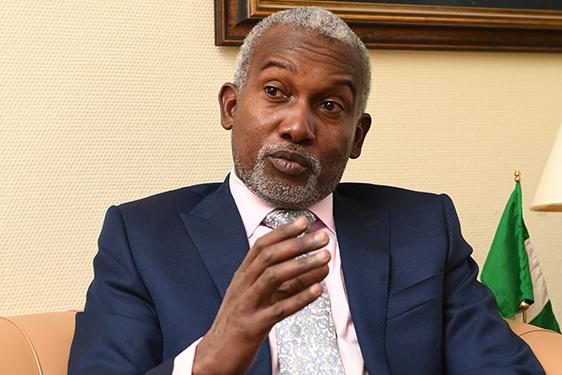In a recent interview with Channels TV, Nigeria’s Minister of Foreign Affairs, Yusuf Tuggar, asserted that Nigeria’s debt-to-GDP ratio places the country outside the ranks of the most heavily indebted developing nations globally.
Key Statements from Minister Tuggar
- Debt Profile Assessment: Tuggar emphasized that Nigeria’s current debt profile does not pose a precarious situation for the nation. He noted that countries like China are willing to extend loans to Nigeria, particularly for infrastructure development and other projects.
“When it comes to the issue of debt, look at the debt-to-GDP ratio of Nigeria; we are not even among the critically indebted nations,” Tuggar stated.
- Debt Forgiveness Discussions: During the recent 79th session of the United Nations General Assembly (UNGA 79), Tuggar highlighted that Nigeria is not solely seeking debt forgiveness for itself. Instead, he noted that Nigeria, as a leader of the global south, advocates on behalf of many developing nations.
“What you’re failing to take into consideration is when we talk about debt forgiveness, we are not necessarily referring to ourselves,” he explained, stressing Nigeria’s role as a leading nation in the global south.
Largest Economy by GDP
Tuggar further elaborated that Nigeria would likely be recognized as having the highest GDP in Africa if the informal sector were accurately accounted for in GDP measurements. He mentioned that the National Bureau of Statistics (NBS) is actively working to rebase the GDP to include contributions from the informal sector, which plays a significant role in the country’s economic activities.
- Criticism and Perception: Tuggar acknowledged that while constructive criticism is valuable, it should not lead to undue self-flagellation. He reiterated that the global community views Nigeria differently.
“We don’t have to keep pushing ourselves down when the world looks at us differently,” Tuggar asserted.
Current Debt Figures
According to previous reports, Nigeria’s debt-to-GDP ratio has crossed the 50% mark for the first time. The latest figures from the Debt Management Office (DMO) indicate that Nigeria’s public debt has reached ₦121 trillion, which consists of ₦65.6 trillion in domestic debt and $42.1 billion in foreign debt (approximately ₦56 trillion when converted).
As of December 2023, Nigeria’s total nominal GDP stood at ₦229.9 trillion, experiencing only a 2.74% growth in real terms. The significant increase in Nigeria’s debt profile over the past eight years has been driven by fiscal challenges, including declining crude oil revenues and rising budgetary expenditures.











